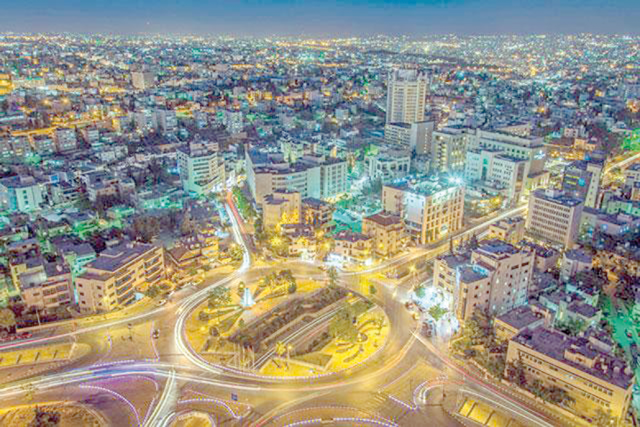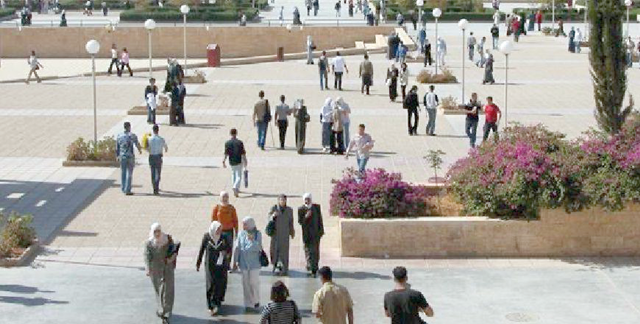You are here
Economic Modernisation Vision demands intergovernmental commitment, say experts
By Mays Ibrahim Mustafa - Dec 28,2022 - Last updated at Dec 28,2022

An intergovernmental commitment to the executive plan for the Economic Modernisation Vision (2023-2025) that translates into tangible reforms is essential to achieve its goals, according to economists (File photo)
AMMAN — An intergovernmental commitment to the executive plan for the Economic Modernisation Vision (2023-2025) that translates into tangible reforms is essential to achieve its goals, according to economists.
On Tuesday, the Cabinet approved the executive plan, which features 183 initiatives that will be implemented at a total cost of JD2.3 billion through the end of 2025, the Jordan News Agency, Petra, reported.
According to Al Mamlaka TV, 72 per cent of the initiatives have a direct impact on women’s empowerment
Economic expert Mohammad Al Basheer said that enhancing women’s economic participation requires serious structural and systematic reforms to address barriers such as the gender wage gap, as well as infrastructural inadequacies related to transportation and childcare facilities.
“Reduced female labour force participation can hamper productivity and adversely impact economic growth,” he told The Jordan Times, adding that gender equality is an “imperative” requirement for achieving the objectives of the modernisation vision.
Basheer also noted that in Jordan, women have one of the highest literacy rates in the Middle East and account for a very high percentage of the university student body compared with their male counterparts.
This means that women’s inclusion in the labour market will “undoubtedly” result in economic gains, he said.
Moreover, Basheer stressed that “a serious economic stimulus plan demands reducing costs, including the sales tax on production inputs, the sales tax on energy sources and debt interest”.
He added that an efficient transport system, which is a target of the plan’s initiatives, is vital for achieving growth and reducing unemployment rates.
In an interview with The Jordan Times, economic expert Hosam Ayesh said that the development of the logistics and transport sector will play a “central role” in improving the quality of life for people in Jordan.
“Real reform” in this sector requires reducing taxes on oil products, he added.
According to Ayesh, this plan lays the foundation for the modernisation vision through a number of initiative and projects, which are mainly concerned with schematic and logistical aspects.
“It underlines the executive and legislative reforms that will pave the path for the economic growth that the plan aspires to achieve,” he added.
Moreover, Ayesh pointed out that the government’s performance during this preliminary period will be reflected in the future involvement of the private sector and the attraction of foreign investments.
He said that increasing net foreign direct investment (FDI) to approximately JD1,092 million over three years is a “somewhat humble goal”, as FDI currently stands at roughly JD500 million to JD600 million.
However, achieving such growth is still a positive indicator, he added.
According to Ayesh, there are several factors that affect FDI, including a country's GDP, economic growth, the inflation rate, consumer price index, state debt, budget deficit, credit rating, unemployment rates and standards of living, among other social indicators.
The plan’s goal to gradually increase the volume of exports to approximately JD9,713 million, requires reducing costs borne by exporting and industrial sectors and reconsidering many of the crippling taxes and fees imposed on exports, Ayesh said.
He also stressed that the plan’s success demands ensuring that it is intergovernmental, and the ability to adapt it to any variables that may arise in the future.
Related Articles
AMMAN — A notable increase in the real growth rate demands reducing the government’s reliance on loans and mitigating the taxation burden on
AMMAN — His Majesty King Abdullah II’s Speech from the Throne, delivered during the second ordinary session of the 19th Parliament, underlin
AMMAN — Reducing the unemployment rate in Jordan demands“fundamental” fiscal reforms, such as reviewing capital expenditure, increasing wage

















